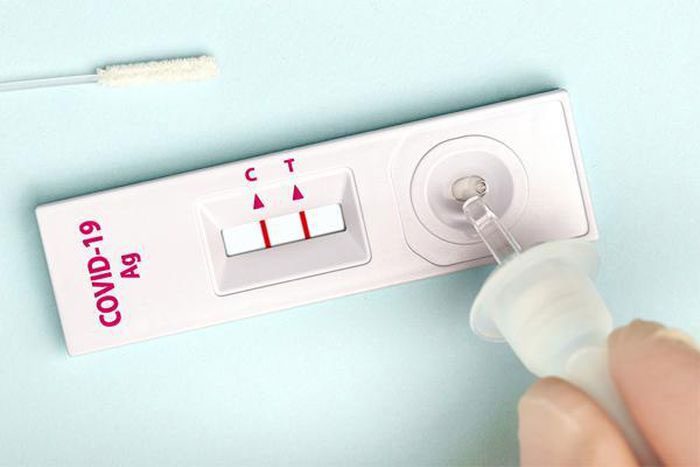A healthcare worker in Spain has contracted Covid-19 twice within 20 days.
The 31-year-old woman first tested positive on December 20, 2021, during a routine PCR test for staff. She had received her third vaccine dose just 12 days prior. The patient did not exhibit any symptoms but self-isolated for 10 days before returning to work.
On January 10, 2022, she developed a cough and fever and underwent another PCR test, which returned a positive result for the second time. The two infections in this healthcare worker were separated by 20 days.

The two infections in this healthcare worker were separated by 20 days. (Illustrative image: Insightplus).
This case was reported at the European Congress of Clinical Microbiology and Infectious Diseases this year in Lisbon, Portugal. The patient underwent gene sequencing, which revealed she was infected with two different strains of SARS-CoV-2. The infection in December 2021 was the Delta variant, and the second one in January was the Omicron variant.
Dr. Gemma Recio, one of the study’s authors, remarked: “This case highlights the ability of the Omicron variant to evade immunity gained from vaccines and previous infections.”
However, vaccination and prior Covid-19 infections still provide protection against severe illness and hospitalization in individuals infected with Omicron.
Risk of Reinfection
Before November 2021, less than 1% of total Covid-19 cases in the UK were reinfections. However, after Omicron became the dominant strain, this figure surged to 11%. This indicates that infections with the Alpha or Delta variants prior do not offer strong protection against Omicron. Nevertheless, reinfection with two strains of the Omicron variant is much less common.
Initial data from the UK suggests that some individuals have been infected with both strains of the Omicron variant, first BA.1 and then BA.2. Scientists in Denmark assessed that dual infections may occur but are very rare.
The Danish analysis reviewed data from 1.8 million Covid-19 cases from late November 2021 to mid-February 2022, during the period when Omicron was spreading. The results recorded only 187 cases of Covid-19 reinfection, occurring between 20 to 60 days apart. Researchers found only 47 cases of reinfection with the BA.1 and BA.2 variants, primarily occurring in young, unvaccinated individuals with mild symptoms that did not lead to hospitalization or death.
Although 47 out of 1.8 million cases is a very low rate, the data may change if collected over a longer period.
Monica Gandhi, a professor of medicine at the University of California, stated that the incidence of Omicron reinfection could become more common than indicated by the Danish study. Professor Gandhi noted that antibodies gained from vaccines or previous infections may only last about four months, and as this protection wanes, individuals become more susceptible to reinfection.


















































